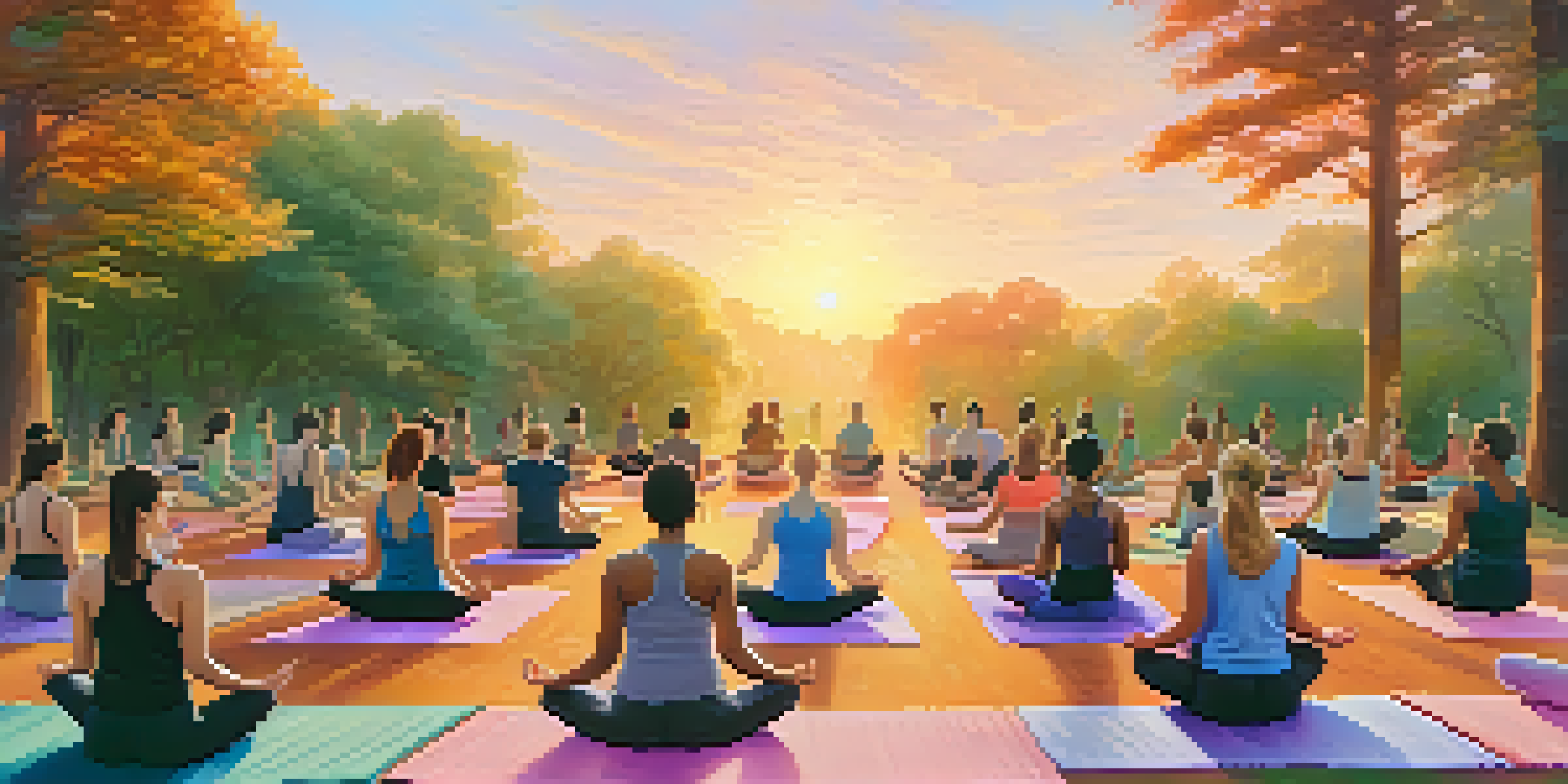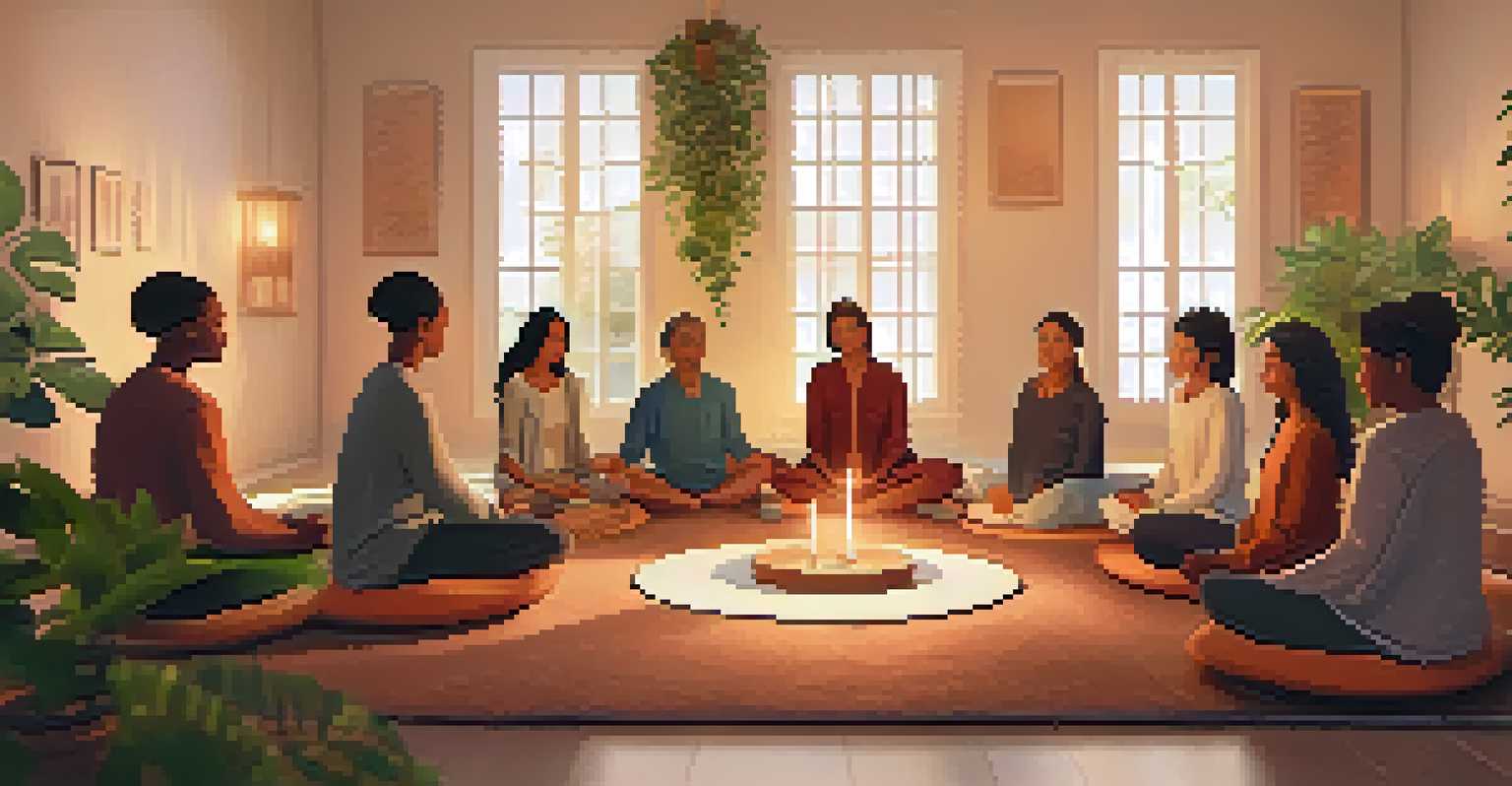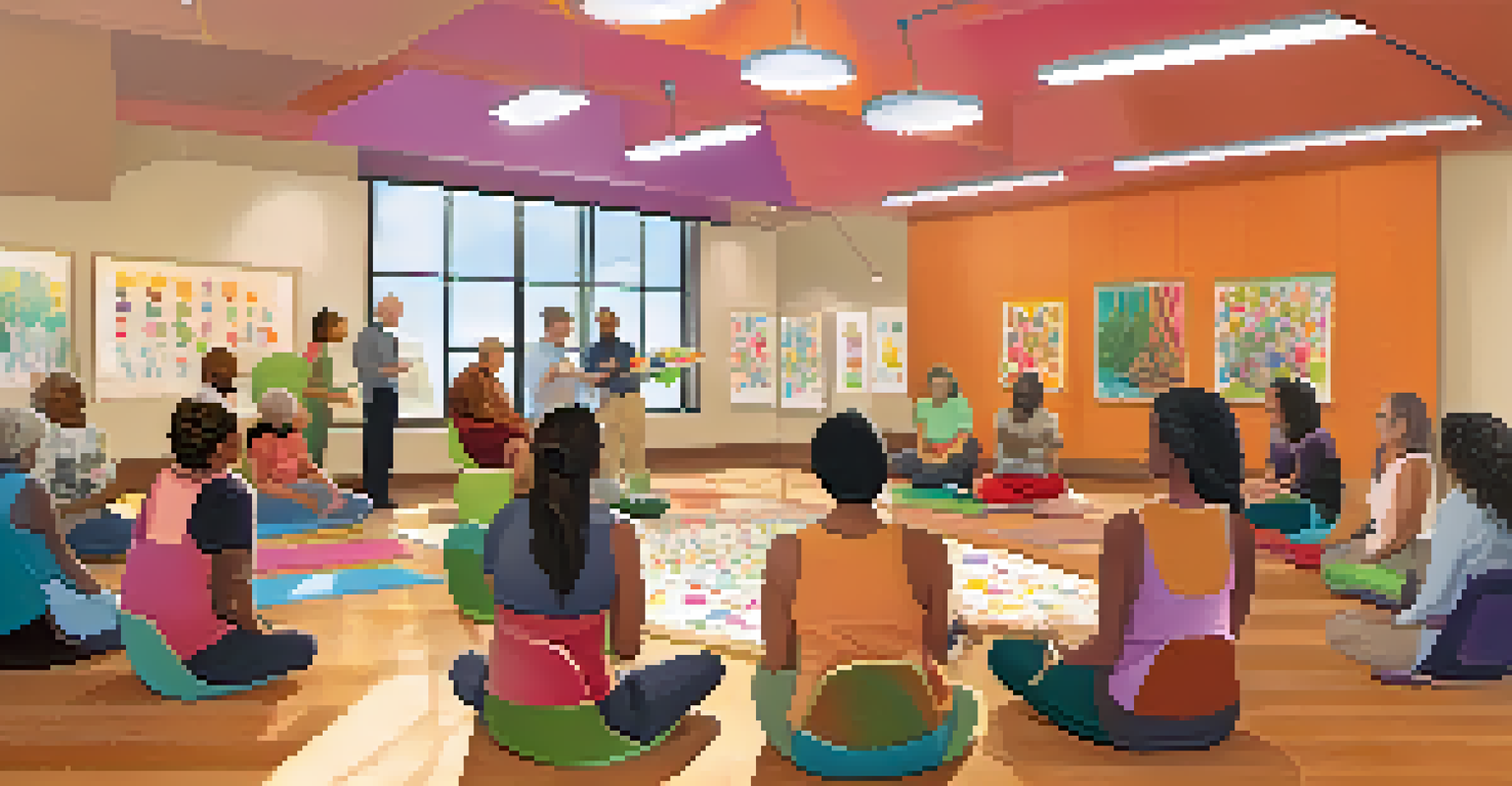The Role of Community Support in Mind-Body Therapies

Understanding Mind-Body Therapies and Their Benefits
Mind-body therapies focus on the connection between mental and physical health, emphasizing the role of the mind in the healing process. Techniques such as yoga, meditation, and tai chi help individuals reduce stress, improve emotional well-being, and enhance physical health. These therapies are not just about treatment; they're about fostering a holistic approach to wellness that nurtures both body and spirit.
The mind and body are not separate. What affects one, affects the other.
By engaging in these practices, many people report a greater sense of peace and balance in their lives. For instance, someone who regularly participates in yoga may find that their anxiety levels decrease, leading to improved focus and productivity. This interconnectedness is at the heart of mind-body therapies, making them popular choices for those seeking comprehensive wellness solutions.
Moreover, the benefits of mind-body therapies extend beyond the individual. They create opportunities for community engagement, which can further amplify their positive effects. When people come together to practice these techniques, they often share experiences and support one another, enhancing the overall therapeutic process.
The Importance of Community in Healing Processes
Community plays a crucial role in the healing journey, providing emotional and social support that enhances individual practices. When people feel connected to others, they often experience lower levels of stress and anxiety, which can significantly impact their health outcomes. The sense of belonging fosters resilience, making it easier for individuals to navigate their healing journeys.

For example, support groups for individuals undergoing therapy can create a safe space for sharing struggles and successes. This shared experience not only validates feelings but also encourages accountability, prompting participants to stay committed to their healing paths. In this way, community becomes a vital element in the overall effectiveness of mind-body therapies.
Mind-Body Therapies Enhance Wellness
Mind-body therapies like yoga and meditation promote holistic health by connecting mental and physical well-being.
When individuals engage in mind-body practices within a community setting, they can draw strength from one another’s journeys. This connection often leads to enhanced motivation and commitment, as people celebrate each other’s progress and provide encouragement during setbacks.
Sharing Experiences: Building Stronger Bonds
Sharing personal experiences within a community can deepen connections and foster empathy among participants. When individuals open up about their struggles with mental or physical health, it creates an environment of trust and understanding. This authenticity not only strengthens relationships but also promotes a collective healing experience.
Healing is a matter of time, but it is sometimes also a matter of opportunity.
Consider a meditation group where members share their personal journeys. One person might recount how meditation helped them manage chronic pain, inspiring others to explore similar practices. These shared stories can motivate individuals to stay engaged and committed, reinforcing the notion that they are not alone in their struggles.
Moreover, shared experiences can lead to the development of new programs and initiatives that cater to the community's unique needs. This collaborative spirit ensures that the community continues to evolve and support its members in meaningful ways.
Creating Safe Spaces for Vulnerability
Safe spaces are essential for fostering open communication and vulnerability, allowing individuals to express their thoughts and emotions without fear of judgment. In community-based mind-body therapy settings, creating these environments is vital for participants to fully engage in their healing processes. When individuals feel safe, they are more likely to share their challenges and seek support.
For instance, a local support group focused on mindfulness may establish ground rules that promote confidentiality and respect. This creates an atmosphere where participants can share their experiences and struggles, knowing their feelings will be validated. Such settings encourage deeper discussions and a sense of camaraderie among members.
Community Strengthens Healing Journeys
Community support fosters resilience and accountability, enhancing the overall effectiveness of mind-body therapies.
Ultimately, when community support includes the creation of safe spaces, it nurtures personal growth and healing. Participants can explore their vulnerabilities, learn from one another, and emerge stronger as a result.
Collaborative Learning and Growth Opportunities
Communities centered around mind-body therapies offer a wealth of collaborative learning opportunities. Participants can learn from each other’s experiences and insights, enriching their understanding of various practices and techniques. This collaborative approach often leads to innovative ways of integrating mind-body therapies into daily life.
For example, a community yoga class might host workshops where participants can share tips on overcoming challenges related to their practice. Such collaboration can enhance the learning experience and provide practical solutions that individuals can apply in their own lives. This exchange of knowledge fosters a sense of unity and shared purpose.
Moreover, collaborative learning can inspire individuals to explore other aspects of wellness, such as nutrition or emotional intelligence. As they share ideas and resources, community members can expand their holistic approach to health, benefiting not just themselves but also their loved ones.
The Ripple Effect of Community Support
The impact of community support in mind-body therapies often extends beyond the immediate participants, creating a ripple effect that can influence entire communities. When individuals experience healing and growth, they are often inspired to share their journeys, encouraging others to explore similar paths. This sharing can spark interest in mind-body therapies among those who may not have previously considered them.
For instance, someone who finds relief from anxiety through meditation may encourage friends or family members to join them in practice. As more people engage in these therapies, the community as a whole benefits from increased awareness and understanding of holistic health approaches. This collective shift can lead to a more supportive and health-conscious environment.
Shared Experiences Foster Connection
Sharing personal experiences within a community creates trust and empathy, leading to a collective healing process.
Furthermore, as community members share their positive experiences, they can advocate for increased resources and opportunities related to mind-body therapies. This advocacy can result in more workshops, classes, and events that promote wellness, ultimately elevating the community's overall health and well-being.
Conclusion: Embracing Community for Holistic Healing
In conclusion, community support plays a vital role in enhancing the effectiveness of mind-body therapies. The connections formed within these communities create a nurturing environment that fosters healing, growth, and resilience. As individuals come together to share their experiences and support one another, they contribute to a larger movement towards holistic wellness.
The benefits of community engagement in mind-body therapies are profound, affecting not just individual participants but also the wider community. By embracing the power of connection, individuals can amplify their healing journeys and inspire others to embark on similar paths toward wellness.

Ultimately, the integration of community support in mind-body therapies transforms the healing process into a shared experience, making it more accessible and impactful for everyone involved. This collective approach to health encourages us to recognize the importance of connection in our journeys toward well-being.